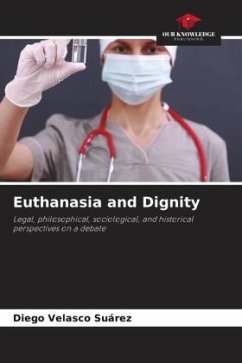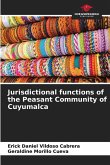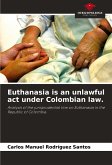Based on the bill presented in Uruguay, euthanasia is conceptually delimited, clarifying some prejudices. It is analyzed whether the proposed normative change is legally admissible, according to the principle of dignity and human rights. The arguments of the judgment of the Superior Court of Justice of Lima in the Ana Estrada case, February 2021, are contrasted. The consequences of changing the concept of dignity underlying the legalization of euthanasia are studied from a social and ethical perspective, particularly in the field of medicine and palliative care, and in light of the experience of other countries (Holland, Belgium and Canada) and the historical origins of euthanasia in Germany in the first half of the twentieth century.
Bitte wählen Sie Ihr Anliegen aus.
Rechnungen
Retourenschein anfordern
Bestellstatus
Storno








